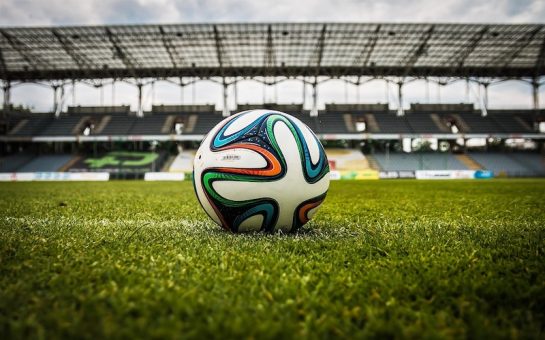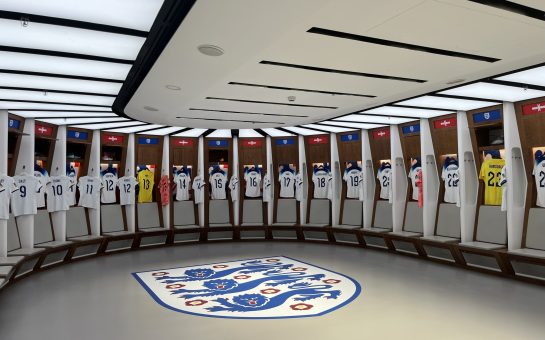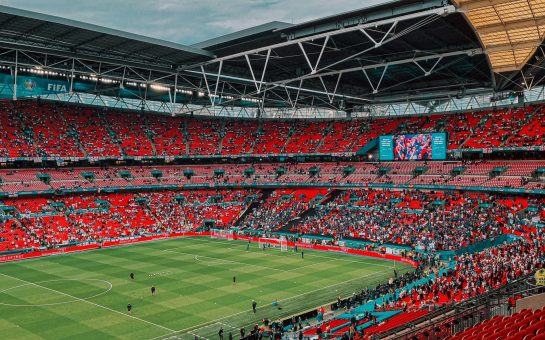Walking out onto Moncton Stadium’s artificial pitch last week, Chelsea’s Claire Rafferty was far from home but even further still from her days at Kent Magpies.
At 26 years old, Rafferty has played for Chelsea for eight years, overcome three ACL injuries, represented Team GB in the 2012 Olympics and is currently wearing England’s number three shirt at the FIFA’s Women’s World Cup.
Having accomplished this in just 12 years, Rafferty is a shining example of how far women’s football has travelled in a relatively short period of time.
Now the fastest growing sport for females in the UK, football is no longer just the highlight of the week for the working class white male.
With the footballing world in turmoil after allegations of bribery and corruption in the highest ranks of FIFA, women’s football could be about to emerge as the saving grace of a troubled and tarnished game.
“Whoever is going to be next in charge I just want them to push women’s football more than Sepp Blatter did,” said Rafferty.
April 2011 saw a major re-organisation of the structure of UK women’s football in the shape of the Football Association’s Women’s Super League (FA WSL).
Consisting of two divisions and boasting 18 licensed competitors, the Super League recognises top female footballers playing in the UK.
But Rafferty thinks the real boost came from the 2012 Olympics.
She said: “The fact that we were Team GB and not England helped to take away some of the stereotypes that our culture gives women in sport.
“People got behind us because we were one unit, we were one team, it wasn’t England. Athletics, badminton, football, whatever, was all one Team GB. I think that was massive for us.”
While progress is being made, there is still a tendency to compare the might of the men’s Premier League directly with its enthusiastic little sister.
Compare the cool $52.2m Cristiano Ronaldo pockets from his Real Madrid salary with the $400,000 made by Brazilian women’s player Marta Vieira – arguably the best women’s footballer ever – and you can see the ladies still have a long way to go.
“In England the media is so fond of the male sport especially football,” said Rafferty.
“It’s such a male-dominated field that it’s a real struggle to get out there but we are in the right direction.
“Hopefully this World Cup, it will pick up a bit more and then we can see it through to the rest of the WSL league.
“We need to have that consistency and visibility.
“Obviously the World Cup is a big deal and we do have some of our league games on BBC Sport. We need that initial investment to then carry on, I think there needs to be a lot more sponsorship.”
Take a glance across the pond and the left-back does have a point. Players like US striker Alex Morgan can rake in almost £2m on endorsements alone from the likes of Nike, Coca-Cola and Tampax.
In the US, mums who have enjoyed the benefits of football have encouraged their daughters to play, opening up a whole new avenue through which companies can access a highly lucrative female market.
At grassroots level in the UK, with the all-too-familiar freezing sheds for changing rooms and hand-me-down kits from the men’s teams, it can be difficult to encourage women to take up the game though.
Rafferty said: “I actually think that girls and boys should be able to play together for longer and I think the cut off is about 13. I think that’s the way you can keep the interest.
“It starts to fade with girls sports, there is usually a pattern of girls being disinterested in sports at school, you see at a certain age they’re usually not interested anymore and they don’t want to get their hair messy.”
But since the emergence of sportswomen as role models at the 2012 Olympics, girls are starting to look past the mud and slide tackles and see the physios, mothers, lawyers and, in Rafferty’s case, financial analysts that make up Mark Sampson’s 23-strong England squad.
Rafferty said: “Girls want to be like us and I think the social cultural side of things will change.”
Projects like the ‘This Girl Can’ campaign run by Sport England promote the confidence-building qualities of participation in sports like football.
To add to this, girls will soon be able to try out their football skills on FIFA 2016, which will feature 12 women’s teams including England.
“It’s the exposure that we need, it doesn’t take much for them to do it either, it isn’t a massive deal to them,” added Rafferty.
“It’s pretty cool that we’re in it and I will be playing it.”
England take on Colombia tonight in a tense final game in Group F. A win will see them qualify in first or second place, while a draw would guarantee them one of the four third-place spots that go through to the second round. Defeat could see them eliminated.
Feature image of Claire Rafferty courtesy of ourplanetdiaries, via Youtube, with thanks




